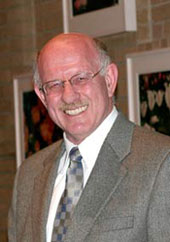

Wednesday - July 18, 2007
SLAC Today is
available online at:
http://today.slac.stanford.edu
In this issue:
All Hands Meeting Today
Profile: SLAC's Labor Pool
Gets the Job Done
Panofsky Fellow Helps Win 2007 Gruber Cosmology Prize
 |
 |
|
Wednesday - July 18, 2007 |
 All Hands Meeting TodayPlease join me for today's All Hands Meeting. After each session there will be time for light refreshments and conversation with the Directorate, Bob McCallum and Kyle Turner. 7:00 - 8:00 a.m. Owl Shift 8:30 - 9:30 a.m. Last names starting A-G 1:30 - 2:30 p.m. Last names starting H-P 3:00 - 4:00 p.m. Last names starting Q-Z and swing shift
|
||
|
|
||
 SLAC's Labor Pool
|
Panofsky Fellow Helps Win 2007 Gruber Cosmology Prize
This year's Gruber Cosmology Prize has been awarded to Brian Schmidt and his High-z Supernova Search team—which includes the Kavli Institute for Particle Astrophysics and Cosmology's Saurabh Jha—and Saul Perlmutter and his Supernova Cosmology Project. The two groups will receive the prize for their discovery that the expansion of the Universe is accelerating. The two teams expected to find that the universe would either expand then contract, or it would continue to expand then slow down over the millennia. But to find out, they needed to be able to measure the speed at which distant objects were traveling away from us—now and at various times in the distant past. And to do this they needed standardized light sources—very bright ones that would be visible to Earth-based telescopes despite being billions of light years away and billions of years old. The standard light sources they used were exploding stars—in particular Type Ia supernovae. But finding them wasn't easy. Then the analyses over the results turned up very surprising results. "The data wasn't behaving as we thought it would," said Schmidt. "There was a lot of nervous laughter," said Perlmutter. For both teams it was not what they were expecting. For months they both tried to figure out where they had gone wrong, searching for any tiny source of error. But the data was right. The accepted model of the universe was wrong. |
Events (see all | submit)
Access (see all)
Announcements
|
| | ||
|
|
||
 <%
Response.AddHeader "Last-modified", getArticleDate()
'Response.AddHeader "Last-modified","Mon, 01 Sep 1997 01:03:33 GMT"
'Monday, December 06, 2010
%>
<%
Response.AddHeader "Last-modified", getArticleDate()
'Response.AddHeader "Last-modified","Mon, 01 Sep 1997 01:03:33 GMT"
'Monday, December 06, 2010
%>View online at http://today.slac.stanford.edu/. |
||